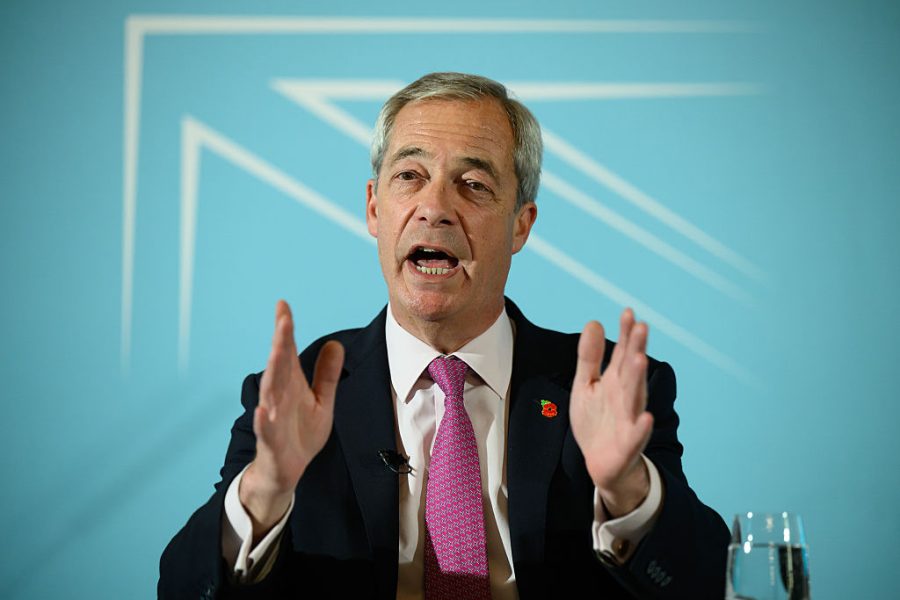The rise of Reform UK has at times seemed to defy gravity. From winning four million votes at the general election last year to emerging as the largest party at this year’s local elections, they have broken through ceiling after ceiling. What’s more, as the only party regularly hitting 30 per cent in the polls, in an era of mass electoral fragmentation, Reform could secure a landslide election victory, as across the UK seven parties split the vote between them.
Is Reform’s rise unstoppable? Granted, we are still likely some three years out from another general election, but the contours of that vote do already seem to be coming into view, and could best be described as the Reform ‘seesaw’. On one end of that seesaw are the forces driving people toward Reform: public misery and disillusion with the status quo, the urge to ‘roll the dice’ on something new.
‘Rooted patriots’ are less radical, less online, and crucially more risk-averse
Listening to focus groups across the country, it becomes clear how weighed down the misery side of the seesaw is at the moment. From Caerphilly to Dundee to Coventry, Britons tell us life feels too hard, that they are ‘not living, just surviving’ and that this government is failing to fix broken Britain.
This frustration is fuelled by a sense that the government has lost control. Recent headlines on migration – record small boat arrivals, the return of a migrant deported under the ‘one in, one out’ deal with France, and the accidental release of Hadush Kebatu – all reinforce this sense of chaos.
Also weighing on that side of the seesaw, you have the Farage factor. For many, he’s not ‘politics as usual’ and is one of the few politicians that many Britons consider to be human and authentic. There is a sense that ‘he gets it’.
But on the other end of the seesaw is the ‘risk’ of Reform. Two groups matter here: the ‘soft’ Reform voters and those who would never vote Reform.
Starting with the ‘soft’ Reform voters, typified by a group the think tank More in Common calls ‘rooted patriots’ or the ‘hero voters’ of the last election. Like Reform’s core base, the ‘dissenting disruptors’, they are also concerned about migration and channel crossings and often feel overlooked by politicians.
But rooted patriots are less radical, less online, and crucially more risk-averse. They want more to be done to tackle hate speech and discrimination and are repelled by figures like Tommy Robinson. Sarah Pochin’s comments this weekend will not sit well with this group. Asked about potential barriers to voting Reform, 30 per cent of Brits cite concerns about racism in the party’s ranks – others worry about their inexperience and whether they are too radical.
Also sat on the other side of the seesaw are a group who would never vote Reform, but who are disillusioned with Labour’s tilt to the right. This group we call ‘progressive activists’, once central to Labour’s coalition but increasingly drawn to alternatives such as Zack Polanski’s Greens. But if Reform is seen as a unique threat, beyond usual political opponents such as the Tories, it could persuade them to ‘hold their nose’ and back Labour, or in other races unite behind whichever party of the left is best placed to stop Reform.
We saw this dynamic in last week’s Caerphilly by-election. Labour’s collapse opened space for Plaid Cymru as the key challenger, but fears of Reform in turn allowed Plaid to become a standard bearer for a wider pool of voters seeking a ‘stop Reform’ option.
Since the general election last year, the seesaw has been moving in one clear direction: Reform has expanded its vote share far beyond its radical base, while the government has struggled to fend the party off because of what Wes Streeting rightly calls a ‘growing sense of despair’.
But the seesaw could still shift. If the government can tackle the cost of living, make good on promises on migration and improve public services, and if Reform fails to handle the part of the seesaw in their control – if they fail to derisk and address their nagging electoral liabilities – then voters may be more inclined to slide down to the other end and give the traditional mainstream one more chance.







Comments